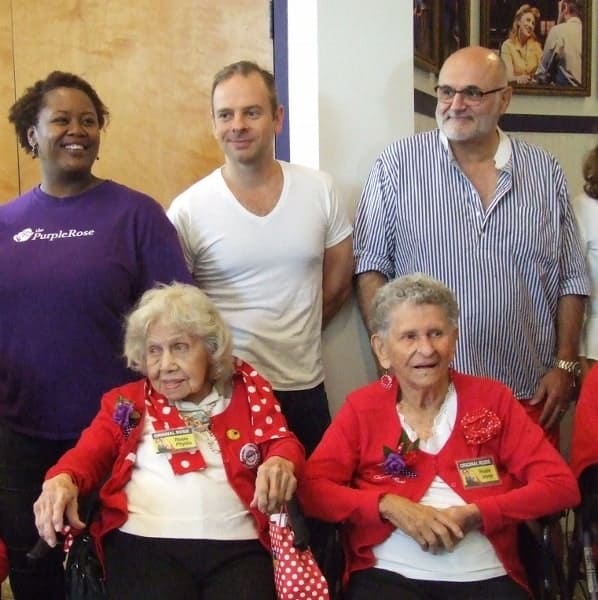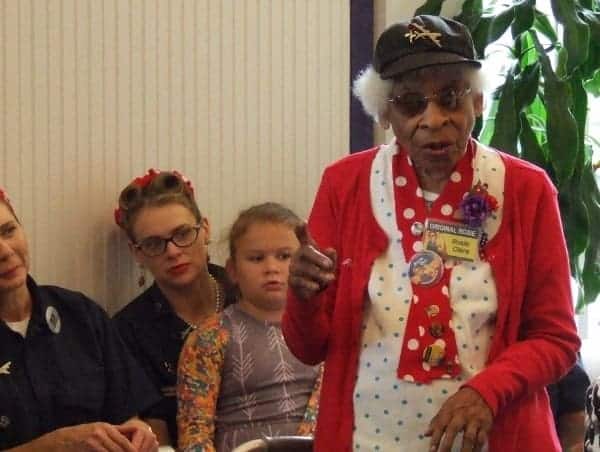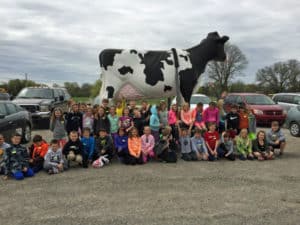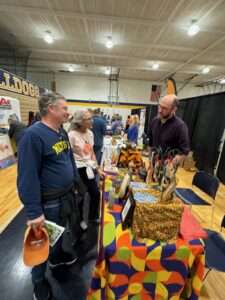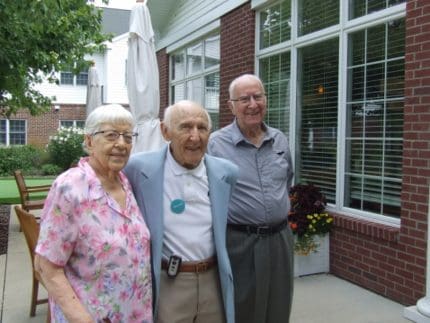
Photos and Story by Crystal Hayduk
When Chelsea resident Nancy Meyers came of age, World War II was tearing the world apart.
Citizens learned about global events through reading newspapers, listening to President Roosevelt’s fireside chats on the radio, and watching newsreels at the movies. “At first, some people didn’t want to get involved in problems in other countries, especially because the memory of the Great War was still acute. But eventually, it happened,” Meyers said.
“December 7, 1941 – a date which will live in infamy…,” said President Roosevelt of the Japanese attack on Pearl Harbor that launched the United States into the war.
By the time Meyers was 20 years old, she was married and living in Belleville. Her husband, like many able-bodied young men, joined the military. He served his country as a paratrooper, eventually jumping behind enemy lines on D-Day.
With changing circumstances stateside, Meyers had decisions to make.
“I wanted to help the war effort. And, I needed to support myself, so I went to work at the Willow Run plant,” said Meyers. “There weren’t many other jobs in Belleville, but there were thousands of jobs available building bomber planes.”
The Ford Motor Company began construction of the Willow Run factory near Belleville in 1941 to mass produce B-24 Liberator bomber planes. The first B-24 rolled off the assembly line on October 1, 1942. At the height of production, one bomber was built every 55 minutes.
Her wartime efforts labeled Meyers as a “Rosie the Riveter.” At the Willow Run plant, she worked in the fuselage (or body) of the airplane, drilling holes and stringing wires in the cockpit during final assembly.
The plant employed more than 40,000 people. “Most of them were women,” said Meyers. “Many men had gone to war. People moved here from other states, especially the south, to answer the call for work to support the war effort, and it gave them the ability to make a good living.”
Meyers credited the bomber plant for the rapid growth of the Ypsilanti area, since thousands of newcomers needed homes, schools, and stores. “It built the community,” she said.
Meyers recalled living with less, helping others, and aiding the war effort through such things as growing victory gardens to trading ration cards. “Ford contracted with Greyhound to provide bus transportation to and from work each day,” she said, which was a huge help since gasoline was rationed and many of the employees did not own cars. “Gas rations didn’t apply to the buses that got us to work.”
Even though so many people worked at the factory, Meyers said it felt smaller, since people stayed in their work area. “We were busy working all the time. Even if there was any kind of stoppage on the line, you stayed in your spot so you’d be ready to work again immediately once the problem was fixed,” she said.
Dick Roller, who lives near Meyers, was a quality control manager at the Willow Run plant. He said that many of the women who became Rosies were housewives or recent high school graduates who had no experience, but quickly obtained the knowledge and skills necessary to put out a quality product. “If they didn’t know something, they’d get together and try to figure it out, but we told them it was okay to ask questions,” said Roller. “None of us knew how to build bombers six months prior. We couldn’t get books to help them. I finally went back to my [former] high school and bought a few cases of mechanical drawing books and passed them out so they could learn the basics.”
Roller praised the amazing work that the Rosies did, citing their desire to help the war effort and to protect the men who would be flying in the planes as reasons for their meticulous work ethic. “There’s no doubt that they did an outstanding job under severe conditions.
“It was a big turnaround for women after what they went through there. They felt confident to go out and tackle the world,” said Roller.
Meyers agreed. “Our work was valued. With the war, we did what they had said women couldn’t do. At the time, I thought the experience would be a breakthrough for women and for racial equality. It was a start, anyway.”
Purple Rose’s Willow Run spotlights “Rosie the Riveter”
The world premiere of Willow Run at the Purple Rose Theatre Company has shed new light on the personal stories of the women who helped the Allied Forces to win World War II.
The play highlights the lives of four women who worked at the plant. “Along the way they overcome a multitude of challenges, learn to endure new sorrows, overcome deep-seated prejudices and forge new friendships.” (http://www.purplerosetheatre.org/whats-on-stage/)
Nancy Meyers and her husband of three years, Paul Becker (who served as a flight instructor during the war), said playwright Jeff Duncan has accurately captured a snapshot of life at that time through his interviews with many original Rosies.
The audience at the matinee on Aug. 18 was filled with original Rosies and their families, as well as tribute Rosies (women who are keeping the Rosie story alive). Following the performance, the Rosies posed for pictures with the show’s cast, and answered questions about their lives and their work.
Melissa Johnson, the mayor of Chelsea, presented a moving letter of recognition to the Rosies for their significant contributions that left many in the assembly in tears. “These women took on new roles, learned new skills, and shattered stereotypes,” it read in part. “Due to the efforts of these women, Willow Run came to symbolize Detroit’s heroic contribution to the war and helped Detroit become known as ‘the Arsenal of Democracy.’”
Director Guy Sanville said that Willow Run is a story that “resonates with people in a real and personal way.”
Addressing the Rosies, Sanville said, “We could not have won this war without women. You saved this country and [won] this war.” And with thunderous applause, the crowd agreed.
For more information about the efforts to save the Willow Run plant or to sign up to join the tribute Rosies, visit their Facebook page at www.SaveTheBomberPlant.org.
To experience the history of the Willow Run plant, learn about visiting the Yankee Air Museum at http://yankeeairmuseum.org/.




